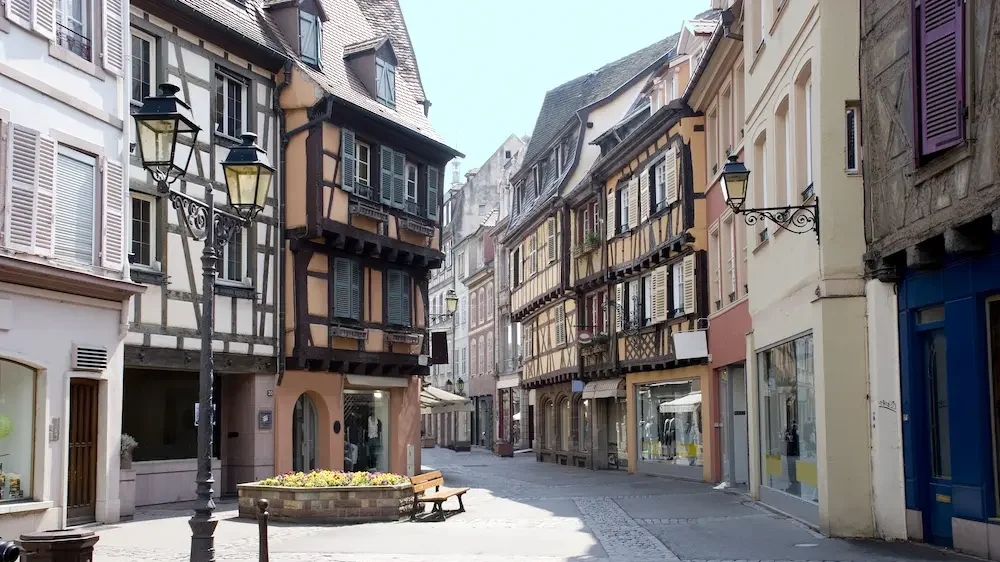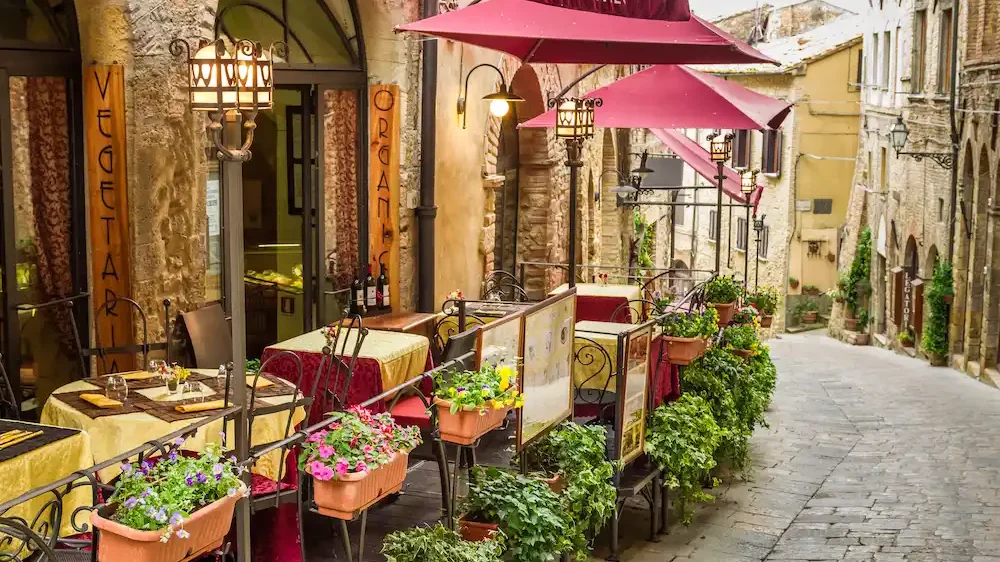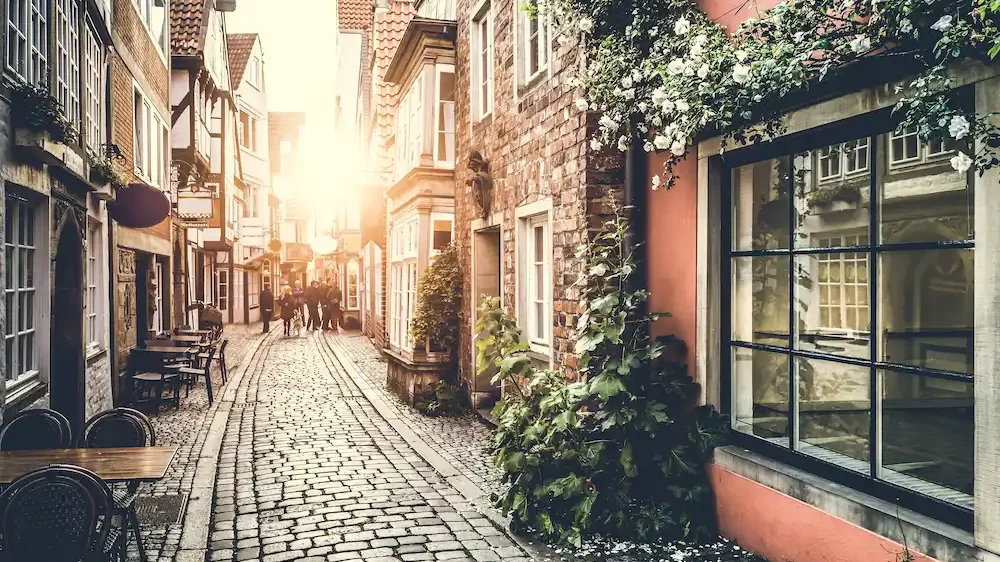The power of a name is often slept on when people consider all of the work that goes into writing a book, making a game, or creating a D;D campaign to play with your friends.
Naming things isn’t easy, especially when there are a lot of things that need names! Towns can be particularly difficult for a lot of people because you often need several towns.
If you are one of those people having trouble coming up with good town names for your fictional narrative, have no fear: today we’re going to hit you with several lists of old town names that you can either use for yourself or simply take inspiration from.
We’ll cover not only some good names but how you can come up with a good name yourself.
So, whether you need names for towns and cities, a sprawling stronghold, or something in-between, let’s talk about some great names of old towns that might serve you well.
Best Old Town Names
“Best” is a very objective term, and technically, it’s open to dispute at any time.
But in our humble opinion, these are some of the best names for old towns available, and in our not-so-humble opinion, we have pretty good taste.
- Kendal – Kent is the name of a river in England, and a dale is a valley. This town is in a valley near the river Kent. You could use a similar name scheme for a fictional town.
- Hillsboro – A borough is a self-governing, walled town. Boro is just a derivative spelling of it, so this is probably a self-governing town near some hills.
- Annesley – In Old English, anne means “solitary” and leah describes a woodland clearing. The words have changed a bit over time, but this town name was derived from these words.
- Plymouth – This town was named due to being situated near the mouth of the Plym river. Not hard to see how they came up with the name.
- Tsuwano – If there’s one thing you will probably notice about Japanese names right away, it’s that there are often many vowels involved. Keep this in mind when coming up with names.
- Cimarron – A town whose name means “feral.” This place must have been well-known for its place in the wilderness.
- Wurzburg – Many German towns end in “burg” or “berg,” both of which are just different spellings that mean “town.”
- Imaicho – A name that roughly translates to “new place of rest for butterflies.” Very poetic, no? A town with this name should be very close to nature and its themes.
- Glympton – In Old English, the word “tun” means “town.” Glyme is the name of a river near this town in the United Kingdom, so that’s how the word came to be today.
- Nagamichi – This name essentially translates to “the long road.” It would be a good name for a town that is situated along a very extensive path, perhaps as a pitstop to somewhere else.
Old American Town Names
The United States isn’t as old as most other countries, but at the end of the day, it has plenty of town names from a bygone era that could be suitable for an old town in the narrative you are weaving.
Let’s take a look at some examples.
- Vicksburg – Originally, burg was German for castle or fortress, but since cities grew around such places often, it eventually just came to mean “town.” So this is Vick’s town.
- Idaho Springs – Naturally, Idaho probably doesn’t exist in your fictional narrative, but this is a good example of how many towns are just named for their surroundings.
- Hillsboro – A borough is a self-governing, walled town. Boro is just a derivative spelling of it, so this is probably a self-governing town near some hills.
- St. Augustine – Many towns are named after famous figures. Your fictional town could be named after a noteworthy historical figure in your narrative.
- Bandera – Allegedly, this town was named after a general of the same name, who led a military expedition in the area. Towns often receive names such as this.
- Edgefield – Not much to say about this one. It’s a town on the edge of a field. A lot of names are straightforward like that!
- White Oaks -Naming a town after the most prominent feature in its surroundings is very normal. Don’t be afraid to follow such naming conventions yourself.
- Plymouth – This town was named due to being situated near the mouth of the Plym river. Not hard to see how they came up with the name.
- Wethersfield – Whoever Wether is, this field belonged to him. At least, until a town sprung up around it.
- Rhyolite – Named after the plentiful amount of Rhyolit that can be found around here, which is a type of volcanic rock.
- Cimarron – A town whose name means “feral.” This place must have been well-known for its place in the wilderness.
- Acoma Pueblo – A pueblo is a Native American town.
- Albany – The town of Albany was named after the Duke of Albany when he took over the territory.
- Old Salem – As opposed to New Salem, we suppose?
- Santa Fe – A town of Hispanic origin, most anyone who lives in the U.S. probably recognizes this one.
- Eureka – The perfect name for a town full of inventors, don’t you think?
- Jamestown -The town of James, about as simple as you can get.
- Silverton -We’re going to hazard a guess and say this town has an abundance of silver.
- Lincoln – What came first, the President, or the town name?
- Bellevue – A French derivative name that means “fair view.”
Old English Town Names
The United States may have started out as colonies of England, but our ancestors still have us beat on old-sounding town names.
That probably has to do with the fact that they are much older than us, so let’s take a look at some fitting old English town names.
- Glympton – In Old English, the word “tun” means “town.” Glyme is the name of a river near this town in the United Kingdom, so that’s how the word came to be today.
- Trenton – This name roughly translates to “Trent’s town.” You could add nearly any prefix to “-ton” to get a town with a meaning like this.
- Wakefield – This name comes from the Old English word wacu, which means “wake” or “vigil.” Field means, well, field.
- Annesley – In Old English, anne means “solitary” and leah describes a woodland clearing. The words have changed a bit over time, but this town name was derived from these words.
- Ashton – As you may have figured out by now, this town is named for ash trees in its area. It basically translates to “town of ash trees.”
- Shirley – This town name also gets its latter have from the Old English word leah, but the first have is derived from scir, which means “bright.” Basically, “bright town.”
- Tatton – “Tata” wasn’t an Old English word so much as a name that some people had back then, so this place is just “Tata’s town.” You could replace the name with anything you wanted.
- Scherwode – This is an Old English way of spelling “Sherwood,” referencing the illustrious Sherwood Forest that you are probably familiar with.
- Lyndon – In Old English, a dun was a hill. Lind was derived from linden trees. As you can see, many town names simply describe what is around them.
- Winton – The name of this town roughly translates to “wine’s enclosure.” Not a bad name for a town famous for a brewery or vineyards!
- Kendal – Kent is the name of a river in England, and a dale is a valley. This town is in a valley near the river Kent. You could use a similar name scheme for a fictional town.
- Bradford – Derived from Old English words that mean “broad” and “ford,” the latter of which is a place where the water is shallow enough to cross a river.
- Maxwell – The name of this town roughly translates to “Mack’s stream.” You can add “well” to the end of a town name to indicate that it is near a stream.
- Buckley – In this case, a buck does refer to a male dear, and the end of the name is derived from leah (a woodland clearing) again. So, this town is near a good hunting spot for buck.
- Farnham – Derived from the Old English words fearn (fern) and ham (home). So such a town is probably near a watery area like a swamp or bog with lots of ferns.
Old German Town Names
For those who don’t speak German, the language may come across as cool and interesting. That’s mostly because of how different it sounds from English at its very core.
Needless to say, there are a lot of cool old German town names out there.
Here’s a list of some of the best!
- Bacharach – A name that is just fun to say is often remembered by an audience.
- Goslar – An administrative town in Saxony.
- Wurzburg – Many German towns end in “burg” or “berg,” both of which are just different spellings that mean “town.”
- Regensburg – This town exists at the convergence point of three different rivers.
- Cochem – A town that was settled as early as the Celtic period in Europe.
- Monschau – This town played a critical role in the Battle of the Bulge.
- Miltenberg The town of Milten, as it were.
- Trier – One of the most famous medieval towns in Germany.
- Ulm – This town’s strange name is probably due to it being on the border with Bavaria.
- Tübingen – Throw in a letter with a fancy mark like this and the name suddenly seems much more exotic.
- Cologne – Not to be confused with a personal scent product of the same name.
- Nuremberg – The historic location of the Nuremberg trials.
- Bamberg – The people of this town must have an explosive disposition.
- Wernigerode – Being weird and exotic is enough to make a memorable town name, sometimes.
- Esslingen – Many German town names end on a strong syllable.
Old Japanese Town Names
Lots of people have an interest in Japanese culture thanks to the huge impact it has had on popular media over the past several decades.
If Oriental names would be more fitting for the fictional narrative you are creating, check out this list and see what we have to offer.
- Tsuwano – If there’s one thing you will probably notice about Japanese names right away, it’s that there are often many vowels involved. Keep this in mind when coming up with names.
- Kawagoe – The rough translation of this name is “to cross over a river.” A town with this name likely affords a means of crossing a river, be it by bridge or merely existing on top of it.
- Kitsuki – This is a castle town in Japan (as in, it sprung up around a castle) that is often referred to as “little Kyoto.”
- Matsue – Matsu in Japanese means “pine.” Whether this town is surrounded by pine trees or built entirely of pine wood, we’re not sure. Either way, this name would fit either scenario.
- Uchiko – A merchant town in Japan that was known for selling candles. So it would be a pretty good name for a town that mostly prospers through trade.
- Imaicho – A name that roughly translates to “new place of rest for butterflies.” Very poetic, no? A town with this name should be very close to nature and its themes.
- Magome – This town’s name roughly translates to “horse coop.” In other words, it is a town that was primarily known for having horse stables.
- Hagi – Hagi is a type of Japanese bush clover. Needless to say, for a town to be named like this, it would probably need a lot of those clovers around.
- Kakunodate – Kakuno means storage and date refers to gallantry. Overall, this town was probably named as such because it was a military storage depot.
- Takayama – This town’s name is simple, translating to “high mountains.” Obviously, it would be a good name for a mountain village.
- Ainokura – Ainokura is a remote farming village in Japan that is also known for its hot springs. The name might translate to “favorite treasure house.”
- Nagamichi – This name essentially translates to “the long road.” It would be a good name for a town that is situated along a very extensive path, perhaps as a pitstop to somewhere else.
- Kurashiki – This name translates to “town of storehouses.” It was probably a village that served as an important storage area in its region.
- Ouchijuku – This used to be an important post town in Japan, serving as a midway point for the delivery of messages and the like.
- Narita – A town particularly known as the home of a large Buddhist temple. This name could serve a religious town in a fictional narrative.

Old Fashioned Town Names
Sometimes, you don’t want a specific culture, in particular, you just want something that sounds old-fashioned.
Some people could argue about whether or not they believe something sounds old or not, but we firmly believe that this list includes some town names that definitely sound like they come from an earlier time.
- Aberdeen
- Larton
- Alryne
- Carlisle
- Hadleigh
- Swindon
- Nearon
- Chester
- Norfolk
- Rotherham

Town Name Inspiration
As you may have determined from this article thus far, one of the easiest ways to find inspiration for a town name is to look at the names of actual towns around the world. After all, you can’t get much more accurate and down-to-earth than that, can you? You can pick any culture in the world and look to their towns for inspiration.
Of course, you aren’t limited to the real world for inspiration either. As long as you don’t outright copy them, it is perfectly fine to look to fiction as well. Games, books, movies, plays, you name it: as long as you put a twist on things to make them your own, there’s no issue with taking inspiration from other fictional sources.
You can also keep in mind that most towns are named after certain things, like a founder, or the terrain that surrounds them. If you want to come up with your own name for a town, keeping these things in mind will probably help you out a great deal.
Help Choosing a Perfect Name
While in real life, towns get named for completely arbitrary reasons, in fiction, everything has some sort of meaning, even if it is minor. This means there are objectively good names and bad names. You want to give a town a name that fits its purpose in the story. Is it supposed to be a small backwater? A gloomy place?
Is it the site of a holy order, or a great battle? A name should evoke certain feelings and imagery when a person hears it. You don’t want to name a scary place “Kerfluffle,” just like you don’t want to name a bright, happy town “Agony’s Requiem” (unless of course, ironic humor is the purpose of your story!).
A perfect name gets the audience to nod their head and say “yeah, that sounds like a name this kind of place would have.” Still, at the end of the day, the most perfect name of them all is the one that you are most content with.
Conclusion
While it isn’t always easy to come up with a great name for something, it’s not always as hard as you think, either.
There are many places you can look to for inspiration, and the only goal you really need to achieve is to create something that you are happy with.
As long as you can do that, you will know the success that really matters.

